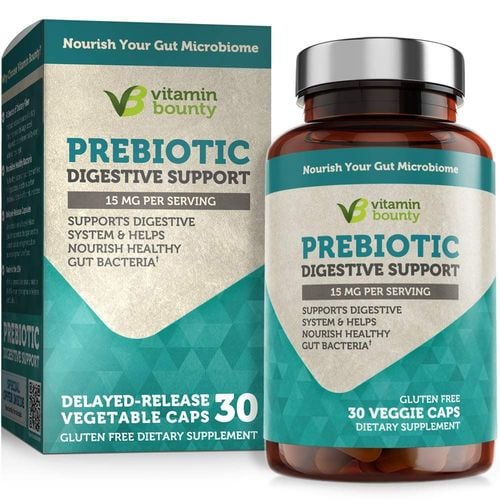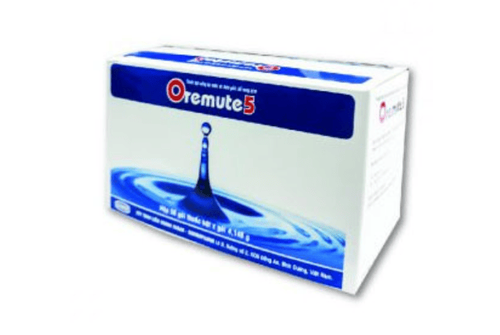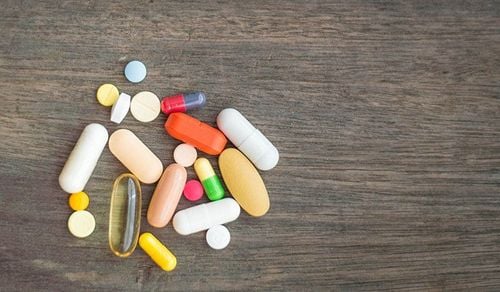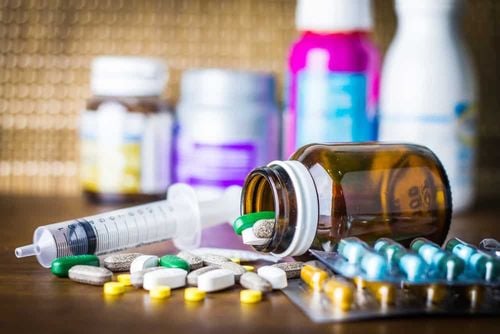This is an automatically translated article.
Posted by Master, Doctor Mai Vien Phuong - Gastrointestinal Endoscopy - Department of Medical Examination & Internal Medicine - Vinmec Central Park International General Hospital
Diarrhea, vomiting and abdominal pain are common symptoms that affect people of all ages, including young children. To avoid these problems, you can proactively apply a few simple ways to see positive results right the first time.
We have all experienced bouts of diarrhea at some point in our lives. Common symptoms of diarrhea include watery stools, abdominal cramps, and bloating. Diarrhea is often your body's way of dealing with a disruption in the digestive system. Acute diarrhea lasts less than 2 weeks and can come from many sources, such as: viral infection, bacterial infection, food poisoning, recent antibiotic use, contaminated water. Read on for some of the most effective ways to manage acute diarrhea.
1. Add enough water
Rehydration is very important when you have diarrhea. Dehydration from diarrhea can be fatal in young children and the elderly. Continue to breastfeed or formula-feed your baby with diarrhea. Over-the-counter children's water supplements, such as Pedialyte, are recommended choices for children with diarrhea.
Scientists have shown that, for adults with mild diarrhea symptoms, sports drinks and over-the-counter rehydration solutions are equally effective. Alcohol, milk, soft drinks, and other carbonated or caffeinated beverages should not be used for hydration, as they can make your symptoms worse.
2. Probiotics
Probiotics are a source of “good” bacteria that work in the gut to create a healthy gut environment. They are basically live microorganisms that exist in a number of foods, including:Perennial soft cheeses Sugar beets - vas Dark chocolate Green olives Kefir Kimchi Kombucha Sauerkraut Cakes Probiotics sourdough noodles also come in powder or pill form.

The good bacteria that live in your gut are necessary for the normal functioning of the digestive system. They play an important role in protecting the gut against infection. When the system is altered by antibiotics or overwhelmed by unhealthy bacteria or viruses, you can develop diarrhea. Probiotics can help cure diarrhea by restoring the balance of bacteria in your gut.
Saccharomyces boulardii is a probiotic. Although it is not a bacterium, it acts like a microbe. S. boulardii can improve antibiotic-associated diarrhea. Doctors suggest that it can help your gut fight off unwanted pathogens and ensure they absorb nutrients properly. Because this is a yeast, it should be used with caution in people with poor immune systems.
It is important to get appropriate medical care in case of acute diarrhea. Talk to your healthcare provider before taking a probiotic supplement to treat your diarrhea.
3. Over-the-counter drugs
With a doctor's supervision, some over-the-counter medicines can help with acute diarrhea if your symptoms are not severe. Common over-the-counter medications include:
Bismuth subsalicylate ( Pepto-Bismol and Kaopectate Loperamide ( Imodium ) ) Although these drugs can relieve the symptoms of diarrhea, they do not treat the underlying cause. you have chronic diarrhea, you should not use these medicines without your doctor's consent.Chronic diarrhea is diarrhea that lasts more than 14 days often with different causes. Be especially careful if your child has diarrhea. Dehydration from diarrhea can be dangerous and can happen quickly in young children. Severe dehydration can be life-threatening. Over-the-counter medications are not recommended for treatment. in children so it's important to talk to a doctor Infants under 3 months of age with diarrhea should seek medical attention right away
If you have bloody diarrhea, fever, symptoms persist For more than seven days, severe abdominal pain or diarrhea that is getting worse, you should see a doctor for appropriate advice.

4. Food to eat
While it may sound counter-intuitive if you have diarrhea, eating certain foods can help ease diarrhea symptoms and make sure your health doesn't worsen from not eating. Eating low-fiber “BRAT” foods will help firm your stools. Includes:
Banana Rice (white) Apple sauce Toast Other foods that are generally well tolerated with diarrhea include:
Oatmeal Porridge Boiled or baked potatoes (with skin removed) Grilled chicken Skin Chicken Soup (also helps to rehydrate)
5. Foods to avoid
Fried and greasy foods are generally not well tolerated in people with diarrhea. You should also be aware of limiting fiber-rich foods like bran as well as fruits and vegetables that can increase bloating. Foods to avoid include:
Alcohol Artificial sweeteners (found in gum, diet soft drinks and sugar substitutes) Beans Berries Broccoli Cabbage Cauliflower Green Beans Coffee Corn Cream Assorted green leafy vegetables Milk Peas Chili Dried Plum Tea

In case of diarrhea accompanied by blood in the urine or stools, green or yellow vomit. The body is tired, there are signs of dehydration, the patient needs to go to medical facilities immediately for examination and timely intervention. Because this is a bad condition, it can seriously affect health.
Currently, to prevent diarrhea in young children, vaccination is the most effective measure. Vinmec International General Hospital provides a variety of vaccines for children, including the vaccine against acute diarrhea for rotavirus produced by GSK in Belgium and Rota manufactured by MSD in the US. .
As for adults, if diarrhea is frequent and prolonged, you should go to the Department of Gastroenterology to be examined by doctors and have appropriate indications from qualified doctors. Vinmec Hospital is always at the forefront of medical service and quality with a team of doctors and modern equipment, so customers can be assured of the results and quality of examination at Vinmec.
Please dial HOTLINE for more information or register for an appointment HERE. Download MyVinmec app to make appointments faster and to manage your bookings easily.
References
Islam, S. U. (2016, February 8). Clinical uses of probiotics. Medicine (Baltimore), 95(5), e2658
ncbi.nlm.nih.gov/pmc/articles/PMC4748908/
Kelesidis, T., & Pothoulakis, C. (2012, March). Efficacy and safety of the probiotic Saccharomyces boulardii for the prevention and therapy of gastrointestinal disorders. Therapeutic Advances in Gastroenterology, 5(2), 111-125
ncbi.nlm.nih.gov/pmc/articles/PMC3296087/
Lee, H., Kim, D. Y., Lee, M. A., Jang, J., & Choue, R. (2014, July). Immunomodulatory effects of kimchi in Chinese healthy college students: A randomized control trial. Clinical Nutrition Research, 3(2), 98-105
ncbi.nlm.nih.gov/pmc/articles/PMC4135247/
Mayo Clinic Staff. (2016, October 25). Diarrhea
mayoclinic.org/diseases-conditions/diarrhea/basics/definition/con-20014025
Probiotics: In depth. (2016, October)
nccam.nih.gov/health/probiotics/introduction.htm














